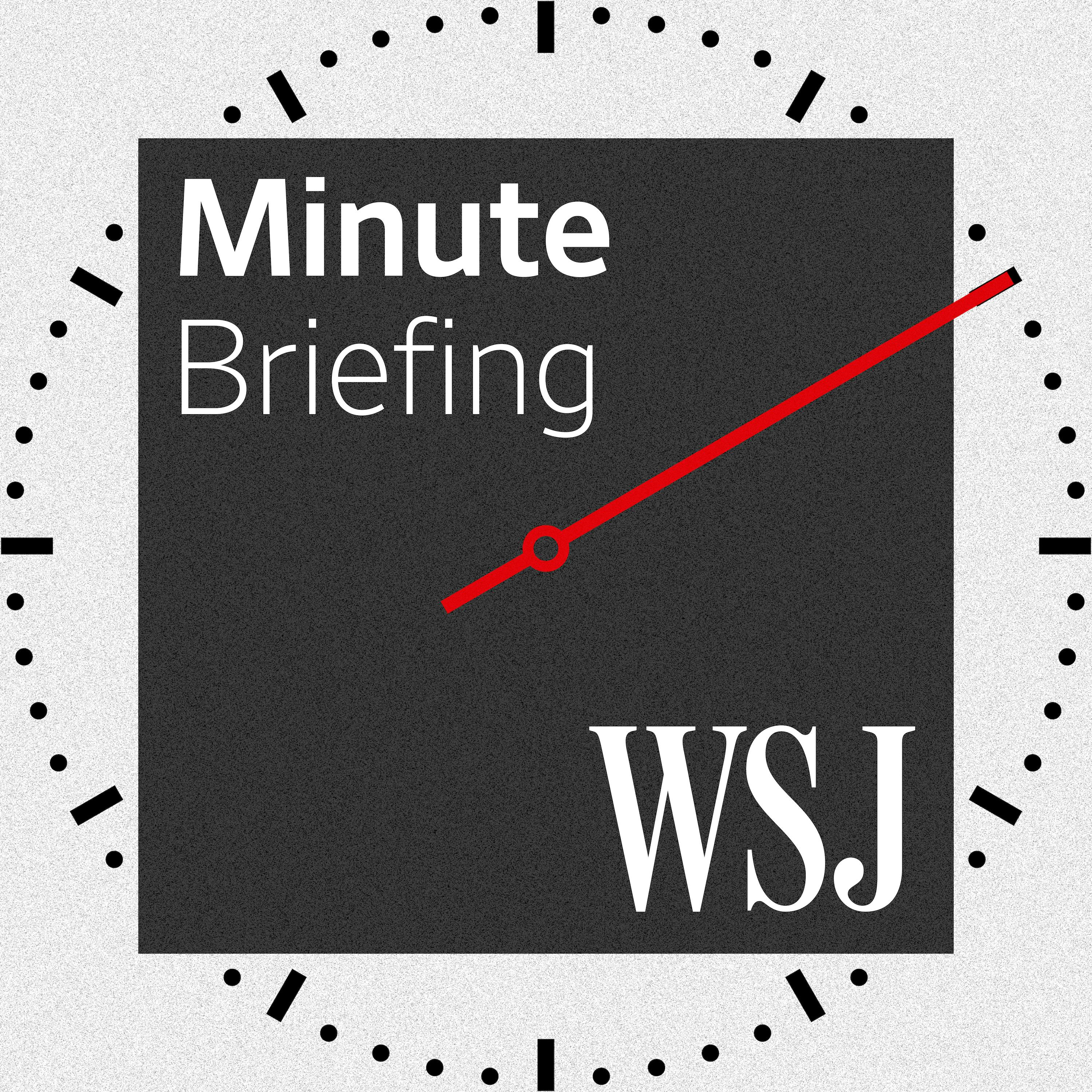
That's Life, I Swear
Every Wednesday, join Rick Barron as he unravels the intricate threads of life's most captivating stories. From heart-pounding political dramas to the awe-inspiring challenges of climate change, he explores the topics that shape our world and define our era.
But this isn't just another talk show. Rick delves deep into the human psyche, examining our beliefs, behaviors, and the obstacles we overcome. He celebrates our triumphs and embraces our imperfections, uncovering the profound lessons hidden in everyday experiences.
The episodes are a journey of self-discovery as he shares stories that mirror our collective identity. These tales aren't just entertaining – they're a reflection of who we are, who we were, and who we aspire to be. They carry the weight of our ancestral legacy, the fire of our dreams, and the depths of our pain.
With each episode, you'll confront your deepest anxieties about yourself, your place in the world, and the future that awaits us all. In understanding these complexities, you'll find inspiration, connection, and perhaps even transformation.
"That's Life, I Swear" isn't just a podcast – it's a weekly rendezvous with the extraordinary nature of ordinary life. Subscribe now, wherever you get your podcasts, and join Rick on this unforgettable exploration of the human experience. After all, that's life, I swear.
That's Life, I Swear
West Meets East: Putin's Global BRICS Ambitions
Text us your thoughts on the podcast
There's a bold geopolitical move happening. It’s Vladimir Putin's plan to reshape the world order with the BRICS Summit.
1. BRICS [Wikipedia]
2. What Is the BRICS Group and Why Is It Expanding? [Council on Foreign Relations]
3. BRICS: What is the group and which countries have joined? [BBC]
4. Q&A: The BRICS expansion and the global balance of power [MIT News]
5. G7 [Wikipedia]
Contact That's Life, I Swear
- Visit my website: https://www.thatslifeiswear.com
- Twitter at @RedPhantom
- Bluesky at @rickbarron.bsky.social
- Email us at https://www.thatslifeiswear.com/contact/
Episode Review
- Submit on Apple Podcast
- Submit on That's Life, I Swear website
Other topics?
- Do you have topics of interest you'd like to hear for future podcasts? Please email us
Listen to podcast audios
- Apple https://apple.co/3MAFxhb
- Spotify https://spoti.fi/3xCzww4
- My Website: https://bit.ly/39CE9MB
Other
- Music and/or Sound Effects are courtesy of Pixabay
Thank you for following the That's Life I Swear podcast!!
⏱️ 13 min read
There's a bold geopolitical move happening. It’s Vladimir Putin's plan to reshape the world order. As Russia convened with China, India, and other emerging powers at the 2024 BRICS summit, Putin envisions a future coalition capable of challenging the economic dominance of the West. But can these nations, united by mutual interests but divided by deep-seated differences, truly emerge as a counterweight to the Western world?
Welcome to That's Life, I Swear. This podcast is about life's happenings in this world that conjure up such words as intriguing, frightening, life-changing, inspiring, and more. I'm Rick Barron your host.
That said, here's the rest of this story
When Russia stunned the world in February of 2022, with a military offensive against Ukraine, the country faced unprecedented Western retaliation - from financial restrictions and banking exclusion to diplomatic isolation. However, Moscow's leader, Vladimir Putin remains focused on demonstrating that his nation maintains powerful international partnerships.
Putin held the BRICS summit in Kazan, Russia in late October 2024. The event was Putin's way of showcasing his alliances worldwide, not to mention telegraphing this message to the West.
BRICS was established in June of 2009.
Originally comprising Brazil, Russia, India, China, and South Africa, the coalition has welcomed four new members: Egypt, Ethiopia, Iran, and the UAE. Despite its peculiar acronym (created by a Goldman Sachs executive at the start of the millennium), this bloc now represents an imposing force, encompassing roughly 50% of the global population and commanding over a third of worldwide economic activity when measured by purchasing power.
The mission of BRICS (Brazil, Russia, India, China, and South Africa) is to promote economic cooperation, political dialogue, and collaborative development among emerging economies, aiming to create a multipolar world order and reduce Western dominance, especially in financial systems and global governance. BRICS countries work together to:
1. Enhance Economic Partnerships: Boosting trade, investment, and growth through the New Development Bank (NDB) and joint projects.
2. Support Developmental Finance: Using the NDB to fund infrastructure, enabling greater control over member development.
3. Advocate for Economic Reform: Pushing for fairer representation in institutions like the IMF and World Bank.
4. Encourage Political and Cultural Collaboration: Unifying in international matters, promoting sovereignty, and fostering cultural exchange.
Overall, BRICS seeks to reshape the global political and economic landscape to reflect the growing influence of emerging economies and to ensure a balanced international system that the West doesn't dominate.
Beyond displaying economic muscle, the 2024 gathering served a more profound, essential purpose. Moscow envisions BRICS as the cornerstone of an emerging global framework that challenges Western dominance and attracts nations seeking an alternative international order.
As Berlin-based expert Alexander Gabuev of the Carnegie Russia Eurasia Center explains, "Putin is using this summit, and future summits, to counter Western pressure." According to Gabuev, the Russian president portrays his Ukrainian campaign as a catalyst for dismantling existing global power structures and fostering a new international system. "In this context," Gabuev notes, "BRICS emerges as the most significant and inclusive framework representing this evolving world order."
During a pre-summit gathering with business leaders and government representatives in Moscow, Putin highlighted the growing economic influence of the BRICS alliance. He pointed out that these emerging economies have driven over 40% of worldwide GDP expansion over the previous ten years.
The Russian leader contrasted this with what he perceives as the diminishing economic significance of the G7 industrialized nations. With confidence, he declared that this economic disparity between the two blocs would continue to expand, describing it as an unavoidable trend in the global financial landscape.
The 2023 event gathering in South Africa proved challenging for Putin, as an International Criminal Court arrest warrant prevented his physical attendance. While other national leaders engaged in face-to-face diplomatic discussions, the Russian president was limited to remote participation, conducting meetings and delivering his address via video link.
The situation was different this time around, in 2024, when Putin announced plans for extensive diplomatic engagement, including 17 separate one-on-one meetings alongside the main summit activities.
According to analyst Alexander Gabuev, For Putin, in-person appearances serve an important purpose. "Each handshake and photo opportunity with fellow leaders is designed to counter the narrative of Russia's diplomatic isolation," he explains. Gabuev further elaborates that Putin aims to reframe the current global dynamic, positioning Russia as part of a broader international majority while depicting Western nations as a minority bloc attempting to exclude Russia from the global community.
Russia and China are spearheading efforts to expand the BRICS alliance, with the Kremlin extending invitations to delegates from 20 additional nations that have shown interest in joining the bloc.
The two powers are also advocating for substantial reforms to international financial structures. While last year's discussions about establishing a shared BRICS currency didn't materialize, current talks are centered on developing an alternative payment network called BRICS Bridge. This system would potentially offer Russia a way to navigate the financial obstacles imposed by sanctions, particularly in international transactions.
Additionally, Russia’s Finance Minister Anton Siluanov is pursuing support for creating a new financial institution that could potentially serve as an alternative to the International Monetary Fund, which suspended its relationship with Moscow following the events of 2022.
While Mr. Putin played the role of 2024 host, China's top leader, Xi Jinping, arrived at the summit in a commanding position. He was expected to hold a bilateral meeting with Mr. Putin, which would mark the fourth face-to-face meeting between the two leaders since Russia's invasion of Ukraine in 2022. Despite growing pressure from the West on China not to aid Russia's war effort, Mr. Xi and Mr. Putin have deepened their relationship, partly because of their shared grievances toward the United States.
As Russia's military Ukraine campaign continues, its economic dependence on China has intensified. Within the BRICS alliance, China's economic dominance is clear - it accounts for over 60% of the group's combined economic strength (down from approximately 70% before the recent expansion to include Egypt, Ethiopia, Iran, and the UAE). This financial supremacy enables Beijing to extend its influence through investment and lending programs to fellow member states.
"The appeal of BRICS membership largely stems from its economic advantages," explains Henry Huiyao Wang, who leads the Center for China and Globalization in Beijing. "China's position as the economic powerhouse within BRICS naturally attracts other nations seeking financial opportunities."
Observers were particularly interested in the potential interactions between Xi and India's Prime Minister Narendra Modi during the 2024 summit. Any progress in their diplomatic relationship could help ease ongoing border disputes. For Beijing, improved relations with New Delhi could weaken India's growing alignment with Western powers, particularly its involvement in the Quad security alliance with the United States.
Eric Olander, who runs the China Global South Project website, notes: "Even a seemingly simple gesture - a handshake and friendly exchange between Xi and Modi - would be significant, suggesting a possible thaw in relations between these two Asian giants."
China views the expansion of BRICS as a strategic tool to counterbalance American global influence. As tensions between Beijing and Western nations have escalated - particularly over China's stance on the Ukraine conflict - the Chinese leadership has increasingly focused on building alliances with developing and non-aligned states.
According to analysts, this growing membership allows Beijing and Moscow to challenge Washington's international authority, presenting themselves as more representative of global interests than the Western alliance of developed nations.
"Beijing is positioning BRICS as a united front of Global South nations standing against Western dominance," observes Yun Sun, who directs the China program at Washington's Stimson Center. However, she cautions that "expanding the coalition may come at the cost of cohesion and coordinated action."
This challenge became evident when BRICS foreign ministers failed to produce a collective statement during their recent United Nations sideline meeting. The group's difficulties in reaching consensus aren't entirely new. Even before its expansion, internal dynamics were complicated by the ongoing competition between China and India for leadership influence among developing nations.
Experts note that while China can count on backing from anti-Western members like Russia and Iran, convincing democratic nations within BRICS - India, Brazil, and South Africa - to adopt an aggressive approach toward the United States remains challenging. These countries view their BRICS membership as a means to maintain diplomatic equilibrium between Washington and Beijing, rather than an opportunity to choose sides.
This balancing act has influenced potential members like Saudi Arabia. Despite receiving an invitation to join BRICS last year, Saudi Arabia has maintained a cautious stance, even leaving its summit participation uncertain.
Although Putin's December 2023 visit to Crown Prince Mohammed bin Salman in Saudi Arabia highlighted what he described as "unprecedented" bilateral ties, Saudi Arabia continues to carefully navigate its relationships with both Russia and Western nations, particularly the United States.
The alliance has received fresh momentum with Brazil's Luiz Inácio Lula da Silva returning to power. As one of BRICS' founding advocates during his 2003-2011 presidency, Lula strongly promoted cooperation among developing nations. Brazil is set to assume the rotating BRICS presidency from Russia this January 2025.
What can we learn from this story? What's the takeaway?
Putin's aim in hosting the BRICS summit in Russia is likely multi-dimensional and was geared toward diplomatic influence and economic strategy. By bringing BRICS countries together, especially in Russia, he can reinforce his message of a multi-polar world and showcase Russia’s commitment to alternative alliances beyond Western influence, particularly in light of the ongoing conflict in Ukraine.
One significant takeaway is the growing importance of coalition-building among emerging economies to counter Western influence. While some BRICS nations might have different priorities and even divergent perspectives on certain global issues, Putin is betting on their shared interest in establishing an economic and diplomatic structure that allows greater autonomy from Western sanctions and policies.
Well, there you go, my friends; that's life, I swear
For further information regarding the material covered in this episode, I invite you to visit my website, which you can find on Apple Podcasts for show notes and the episode transcript.
As always, I thank you for the privilege of you listening and your interest.
Be sure to subscribe here or wherever you get your podcast so you don't miss an episode. See you soon.























